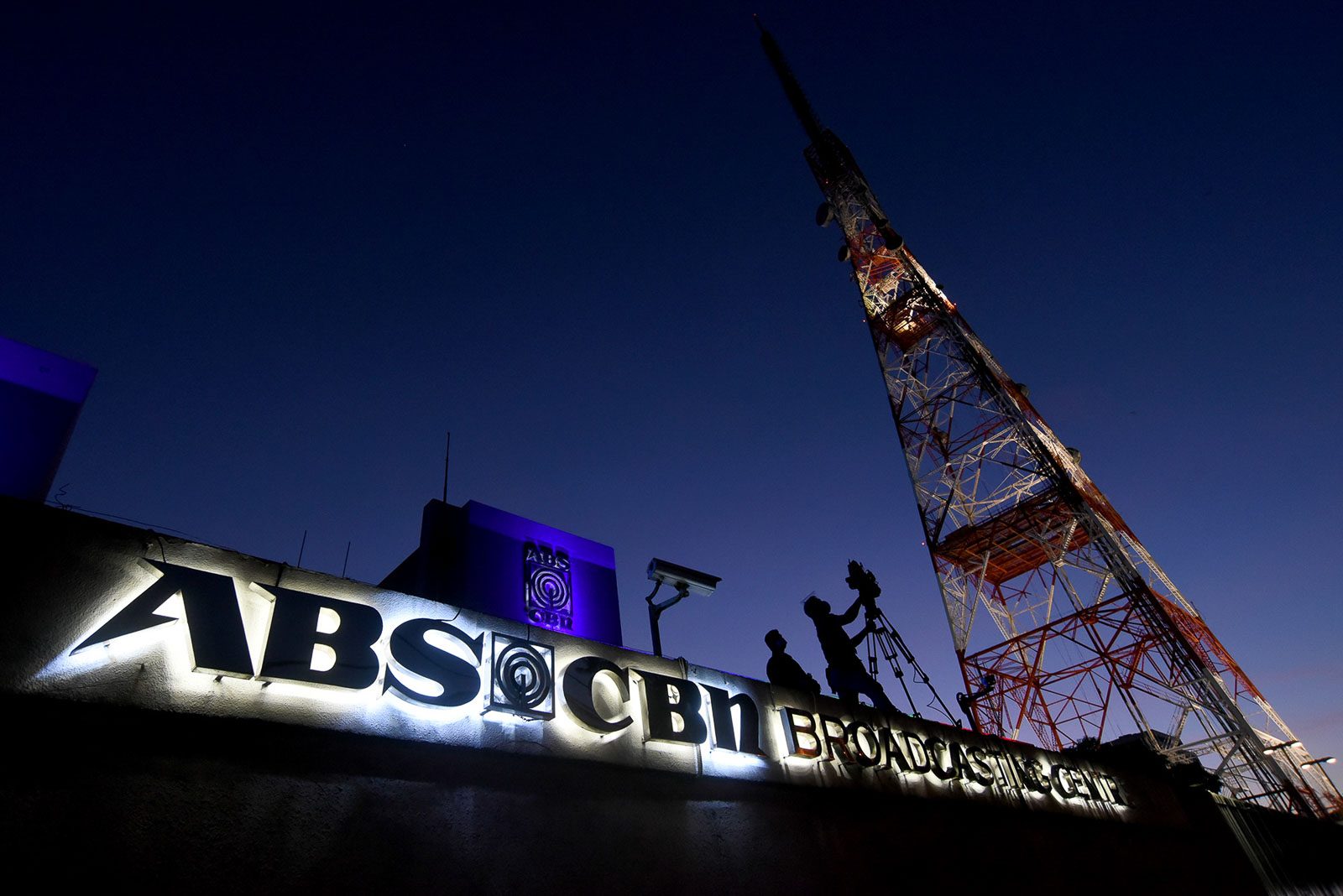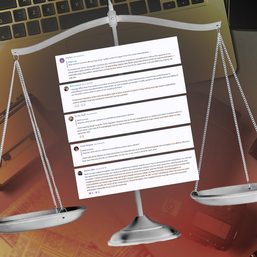SUMMARY
This is AI generated summarization, which may have errors. For context, always refer to the full article.

MANILA, Philippines – The Supreme Court (SC) has ruled in favor of ABS-CBN in a contempt case filed in relation to the gruesome Maguindanao massacre.
In a decision dated April 25, 2023, but was made public only this week, the High Court granted ABS-CBN’s petition for certiorari – a remedy used to review grave abuse of discretion – in relation to the contempt case filed by Andal Ampatuan in 2010.
The case was filed by Ampatuan when ABS-CBN, through then-reporter Jorge Cariño, interviewed a person that provided information about the Ampatuans’ involvement in the massacre.
“ACCORDINGLY, the Petition for Review on Certiorari is GRANTED. The March 24, 2015 Decision and September 7, 2016 Resolution of the Court of Appeals (CA) in CA-G.R. SP No. 126985 affirming the challenged June 8, 2012 and August 14, 2012 Orders in SP. PROC. Case No. Q-10-67543 are REVERSED and SET ASIDE,” the ruling penned by Senior Associate Justice Marvic Leonen said.
“Likewise, the Petition for Indirect Contempt is DISMISSED for failure to state a cause of action.”
The rest of the magistrates, including Chief Justice Alexander Gesmundo, concurred in the ruling.
The case involves an alleged violation of the sub judice rule, which restricts “comments and disclosures pertaining to judicial proceedings.” The SC said this rule prohibits the discussion on the merits of a pending case, which includes contents of the actual pleadings, comments, assessment of the evidence, and relevance of the evidence, among others.
In the decision, Leonen explained that the court had tried to define sub judice before, and now the concept requires “further clarification given the context of public speech.” The senior magistrate said that the SC’s indirect contempt powers are “broad” and “traverse” all kinds of speech.
“The lack of clear-cut rules on the limits of the exercise of speech with clear and present danger to our administration of justice and well-defined boundaries as to when a speech can be punishable and when it is privileged leads to confusion among the litigants, their counsels, members of the bench and bar, the media, and the public,” the senior associate justice further explained.
On the ABS-CBN case, Leonen said the media had the right to provide “legitimate publicity” on matters that were of public interest without prior restraint or punishment. But, he added, the media’s responsibility to inform the public must be balanced alongside the court’s administration, particularly in the sub judice rule.
The ruling
In the ruling, Leonen said there were facts required for the alleged violation of sub judice:
- The statements about the merits of the case were made while the case was pending before a court.
- The required “mental element” of the person who made the remark must be specifically alleged.
- The clear and present dangers of the remarks to the court’s administration of justice must be alleged.
- The effect of the remarks on the court’s administration of justice must be shown, adding “that the utterance will influence the court’s independence in ruling on a case, which will, in turn, affect public confidence in the judiciary.”
The senior magistrate said the second and third allegations were not sufficiently alleged and became “fatal” to the petition against ABS-CBN and Cariño.
In the case, mental element pertains to the “reckless disregard of the truth or falsity of the story” since the ones facing the case are members of the media. Leonen, however, said the mental element was not sufficiently alleged in the case. It was not mentioned in the petition for indirect contempt that ABS-CBN and Cariño recklessly regarded the falsity of the statements of Lakmodin Saliao, a witness who was interviewed by Cariño after the Maguindanao massacre.
“More importantly, there was no sufficient allegation of the clear and present danger of the interview and its broadcast,” the decision said.
Leonen said the petition was able to show the “serious evil” that was sought to be prevented by the sub judice rule but failed to allege its effect on the court’s administration of justice. “Considering that the Petition for Indirect Contempt failed to state all the required allegations for violating the sub judice rule, this Court is constrained to dismiss the Petition.”
Although, Leonen noted that ABS-CBN and Cariño should not have presented Saliao as a witness on national television. He explained that the term “tetestigo (will testify)” removed the distinction between media interviews and the presentation of a witness in a court, adding that Cariño “ended the interview in a manner that bolstered the truth of Saliao’s statements.”
“As Associate Justice Lazaro-Javier points out, the public interest character of Saliao’s statement is not an excuse to disregard the sub judice rule,” the ruling read.
The media, while exercising its mandate to provide news, has the duty to ensure that they are not infringing upon the rights of a person to a fair trial, said the ruling. It added that freedom of speech, of expression, and of the press have always been considered primordial and fundamental – but they were never absolute.
The ruling noted that these rights should not be invoked at the expense of the fundamental rights of others, to further injustice, undermine the dignity of other people, and undermine the ability of the judiciary to administer justice.
“The power to punish for contempt is not a weapon to stifle freedom of expression and the right to information on matters of public interest. Without sufficiently stating a cause of action for contempt, this Court is constrained to dismiss the Petition for Indirect Contempt.”
What happened before
On November 23, 2009, dozens of armed individuals blocked the convoy of then-Maguindanao gubernatorial candidate Esmael Mangudadatu on their way to file candidacy. The incident resulted in a massacre – later known as the Maguindanao massacre – that claimed the lives of 57 people, 32 of which were journalists.
Months later, on June 23, 2010, Cariño interviewed Saliao for TV Patrol World. In the interview, Saliao said he was present when the Ampatuan planned the massacre. He even named the members of the Ampatuans who were present in the said meetings.
On July 16 of the same year, Andal Ampatuan filed a petition for indirect contempt against ABS-CBN, Cariño, and Saliao, claiming the interview was “calculated to interfere with court proceedings to serve Saliao’s own interest without passing through the scrutiny of the police of the National Prosecution Service if it indeed is to form part of or used as evidence in the murder cases aforesaid.”
Two years later, the Regional Trial Court (RTC) denied the affirmative defenses by ABS-CBN and Cariño, according to the ruling. The case reached the Court of Appeals (CA), which also denied ABS-CBN and Cariño’s petition for certiorari and affirmed the RTC’s ruling.
ABS-CBN and Cariño sought the SC’s help by filing a petition for certiorari to assail the CA’s decision.
Why this matters
In the context of courts and the judiciary, the sub judice rule ensures that there will be fairness in the administration of justice by seeing to it that there will be no influences during a court trial. This is the principle the courts have been reiterating.
In essence, this latest decision gave another reminder on the limitations of the freedom of speech, expression, and of the press.
The latest ruling set the standards on how sub judice should be interpreted in terms of media and its reportage on courts. The decision penned by Leonen further clarified the line between the public’s need to information and a person’s right to fair and objective trial.
Aside from providing a deeper understanding of what sub judice is, the decision will now guide the media, especially reporters, when dealing with witnesses or people involved in an ongoing case. – Rappler.com
Add a comment
How does this make you feel?















There are no comments yet. Add your comment to start the conversation.